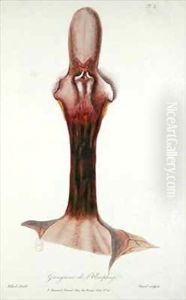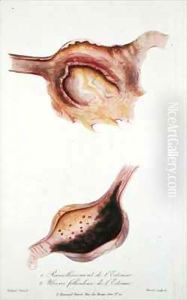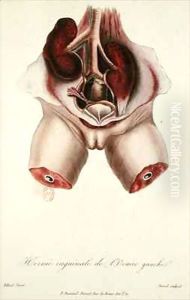Charles-Michel Billard Paintings
Charles-Michel Billard was a French physician, not an artist, known for his significant contributions to the field of pediatric pathology. Born in 1800, Billard's work in the early 19th century laid foundational knowledge for the understanding of diseases in infants and children, a field that was relatively unexplored at the time. His most notable work, 'Traité des maladies des enfants nouveau-nés et à la mamelle,' published in 1828, is considered a seminal text in neonatology and pediatric pathology. This work provided one of the earliest systematic studies of diseases in newborns and infants, including detailed observations and autopsy reports, which were groundbreaking at the time.
Billard's research and observations were among the first to suggest that diseases in children and newborns could have distinct characteristics and causes from those in adults, challenging the prevailing medical assumptions of his era. His meticulous autopsies and the subsequent pathological findings helped to establish a basis for the emerging field of pediatric medicine by highlighting the importance of developmental and age-related factors in understanding diseases in young populations.
Despite his pioneering work, Charles-Michel Billard's career was short-lived. He died in 1832, at the young age of 32, likely from tuberculosis, a common cause of death at the time. Although his life was brief, his impact on medicine was enduring, with his work continuing to influence the fields of neonatology and pediatrics well beyond his death. Billard's dedication to the health of children and his pioneering methods in pathology paved the way for future generations of pediatricians and researchers, establishing him as a key figure in the history of medicine.


